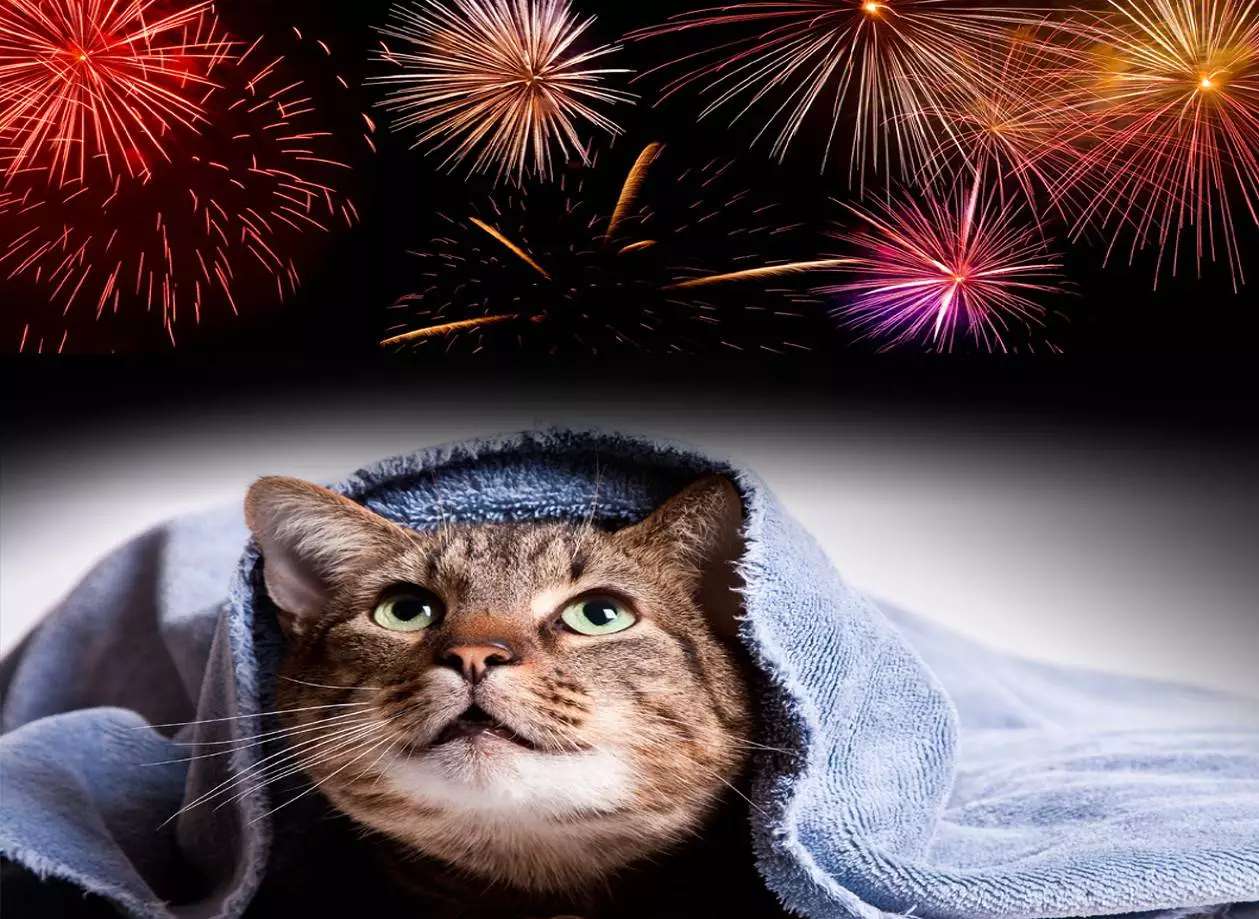As the fireworks season approaches, many pet owners are reminded of the anxiety and distress that loud noises can cause for their furry companions. While Bonfire Night might still be on the horizon, early preparation can significantly mitigate any potential trauma pets may experience. According to animal welfare statistics, a large number of dogs and cats exhibit fear of fireworks, and the need for proactive measures cannot be overstated.
Pets experience the world in ways that are often more intense than we do. Their hearing is sharper, leading to heightened sensitivity to sudden, loud noises like those produced by fireworks. The 2022 PDSA Animal Wellbeing (PAW) Report indicates that a considerable portion of pet owners observe distress in their animals during these celebratory times. PDSA Vet Nurse Nina Downing emphasizes the necessity of planning and understanding that fireworks can lead to severe reactions such as phobias, injuries, or even attempts to escape.
With startling statistics showing compassion yet underscoring the legitimacy of these fears, pet owners are encouraged to take proactive measures. Not only does this preparation benefit the animals, but it can also relieve the stress experienced by owners during these events.
An integral part of preparing pets for the fireworks season involves gradual desensitization to the noises and sensations associated with fireworks. This process should start well in advance of anticipated fireworks events, ideally six weeks prior. Pet owners can begin by playing firework sound recordings at a low volume, rewarding their pets with treats and praise when they display calm behavior.
This method not only provides positive reinforcement but also associates the sounds with good experiences. As pets adapt, owners can gradually increase the volume, ensuring they keep an eye out for stress indicators. If any distress appears, it’s crucial to lower the volume and allow the pet to relax before trying again. Every animal has a different threshold for noise sensitivity, which should be respected throughout the training process.
In addition to sound desensitization, pet owners should create a secure space that can serve as a retreat for their animals during fireworks. This “safe haven” should ideally be a quiet room with minimal windows and comforting items like blankets, bedding, and favorite toys. By allowing pets to explore and familiarize themselves with this space, they will have a designated area to retreat when the sounds of fireworks begin.
Making sure windows and doors are secure is essential to prevent frightened pets from escaping. During fireworks, many animals succumb to instinctual responses such as fleeing, so ensuring all escape routes are carefully checked and fortified can help keep them safe.
Utilization of Music and Calming Agents
Playing soothing music can significantly assist in masking the sounds of fireworks. However, pets can also react negatively to sudden alterations in their environment or routine. To counter this, introducing calming music weeks prior to expected firework displays can create a sense of familiarity that may help dilute their anxiety. This method integrates not only humane practices but also a sense of serenity that pets often seek during overwhelming situations.
Moreover, the use of pheromone diffusers can be beneficial. These diffusers release substances that have a calming effect on pets, and setting them up in advance allows them to diffuse the anxiety before fireworks begin.
Proactive Scheduling and Preparedness
Keeping track of local firework schedules can give pet owners the edge in ensuring their pets are calmly inside before the celebrations commence. Marking these dates in a calendar or setting alerts can serve as a timely reminder to prepare their pets. Additionally, adjusting the timing of dinner or outdoor bathroom breaks can help establish a routine that tempers the onset of distress when the noise starts.
The overall experience may seem daunting, but with the correct planning and preparations, pet owners can navigate the fireworks season with greater success. The peace of mind that comes with knowing one’s pets are safe and secure is invaluable, further fostering a stronger bond between pet and owner.
The lead-up to fireworks season is not just about anticipation but also about responsibility. Pet owners have the power to mitigate fear through early intervention, careful planning, and environmental adjustments. By recognizing the unique sensitivities of their pets and taking steps to prepare them, owners can enjoy the festivities knowing that their furry friends are comfortable and secure. For more engaging strategies to help your pets during this time, consult veterinary resources or animal welfare organizations dedicated to improving pet well-being.
